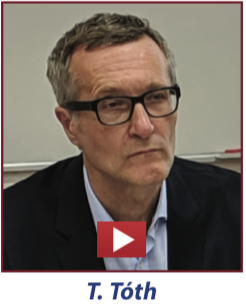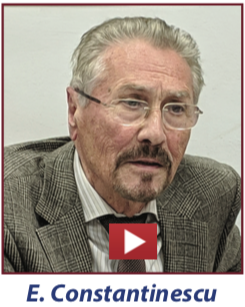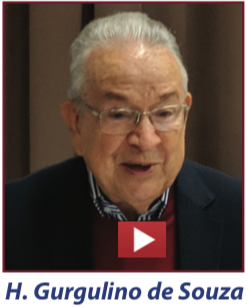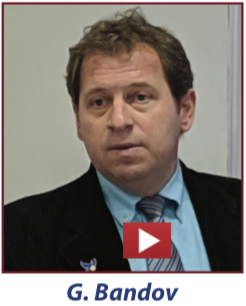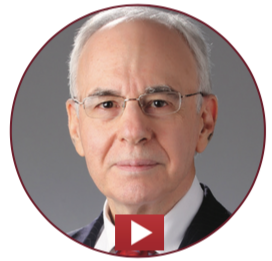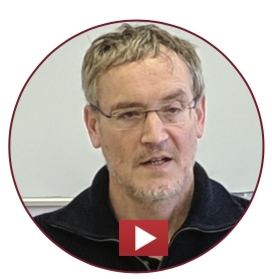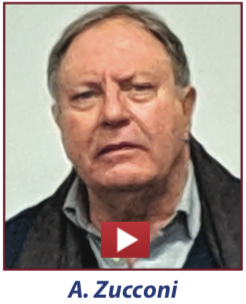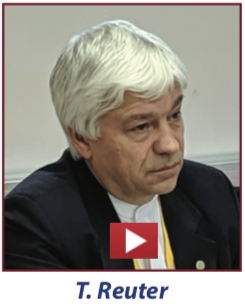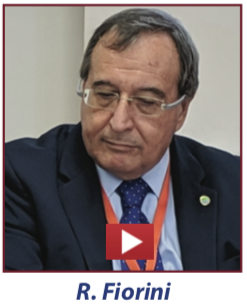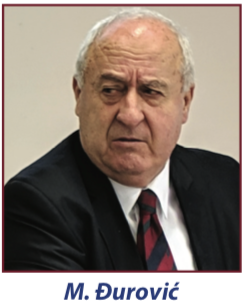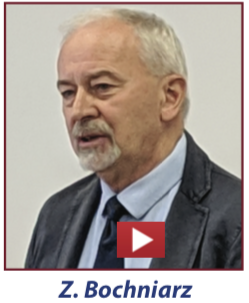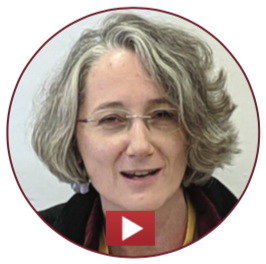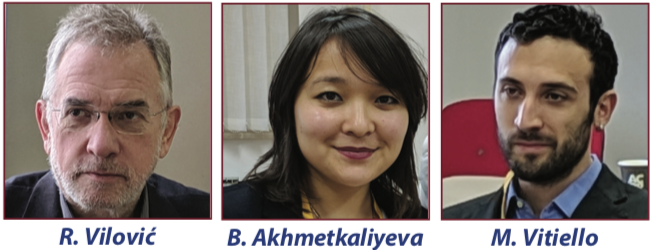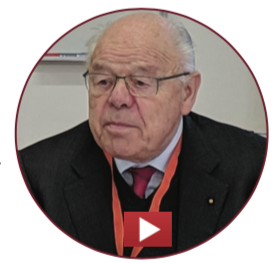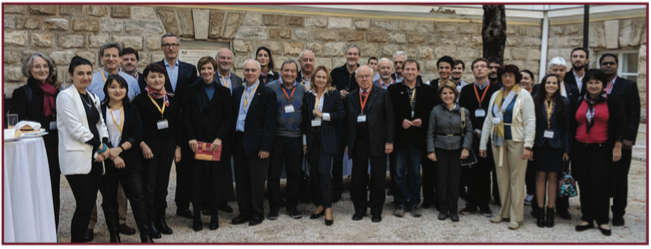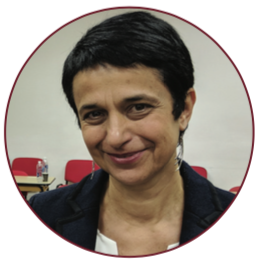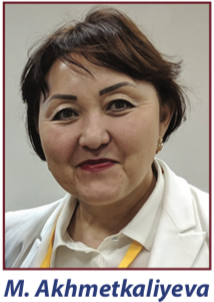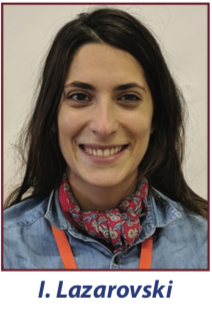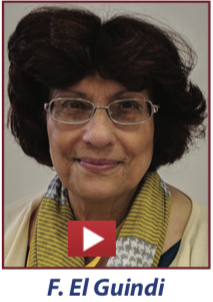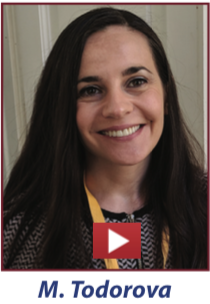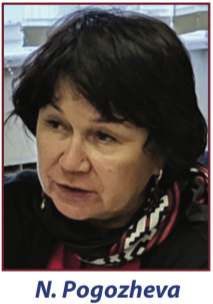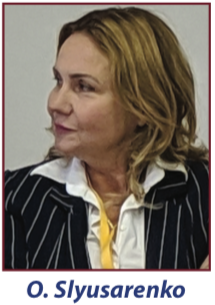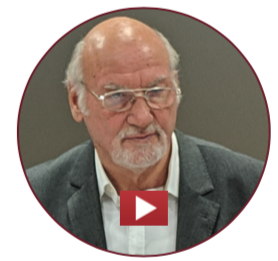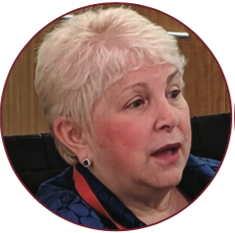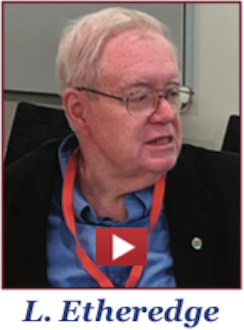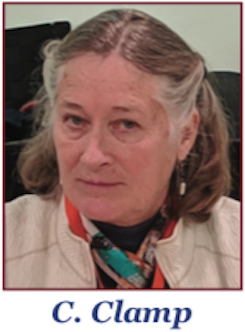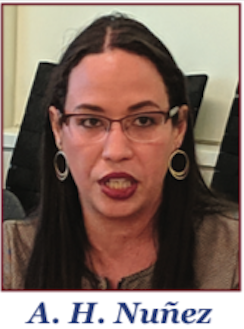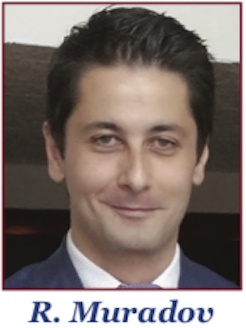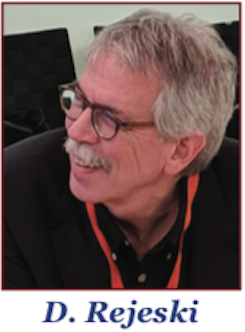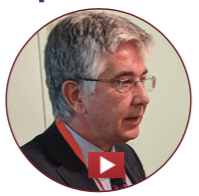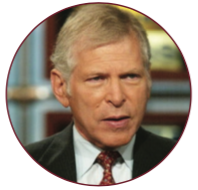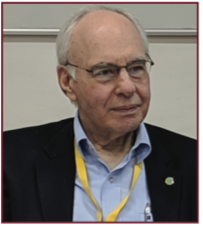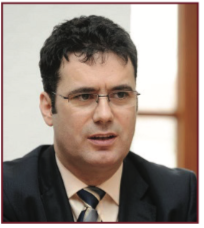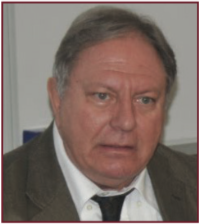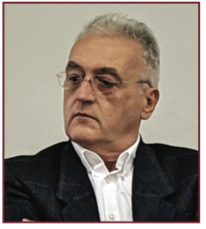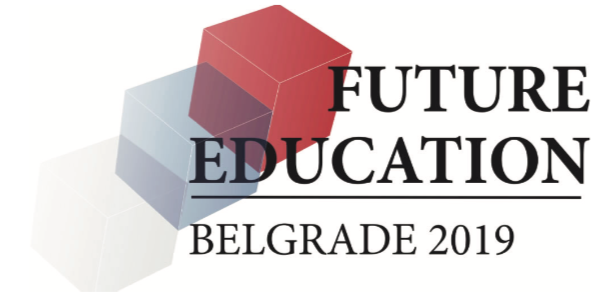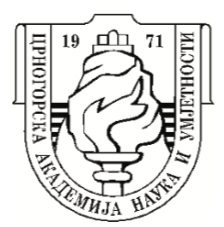| Click here for PDF version | |||

IUC, Dubrovnik: Global Governance |
|||
|
Unprecedented problems call for unprecedented solutions. Today, our world is economically, socially and politically vulnerable and self-destructive. To ensure a future that is more secure, prosperous and sustainable, we need to design new ways of thinking, governing and living. On November 22-24, 2018, an interactive roundtable discussion was organized by WAAS and World University Consortium to explore fundamental philosophical and normative ideas concerning the challenges and opportunities for Global Governance. The meeting was conducted in collaboration with Dag Hammarskjöld University College of International Relations and Diplomacy (Croatia), Inter-University Centre (Croatia), The Mother’s Service Society (India) and the Person-Centered Approach Institute (Italy). This highly interactive roundtable of 35 Fellows and guest participants examined the present challenges to global |
governance from the perspectives of politics, economy, society, culture, ecology and human well-being and identified essential measures needed to develop a more effective, inclusive system of global governance based on democracy and human rights. Zlatko Lagumdžija, former Prime Minister of Bosnia and Herzegovina, discussed the need for effective national and global leadership to facilitate global governance and resolve the major challenges facing humanity. Emil Constantinescu, former President of Romania, discussed the failure of democracy in former dictatorships and the need for a cultural model of global governance that recognizes and honors cultural differences. Simultaneous Policy, a global governance mechanism that enables citizens from different countries to vote together on common interests, was presented by John Bunzl. |
||
Translating Ideas into Actions |
|||
|
GLOBAL GOVERNANCE, Dubrovnik |
UPCOMING IEEE EVENTS |
||
 |
|||
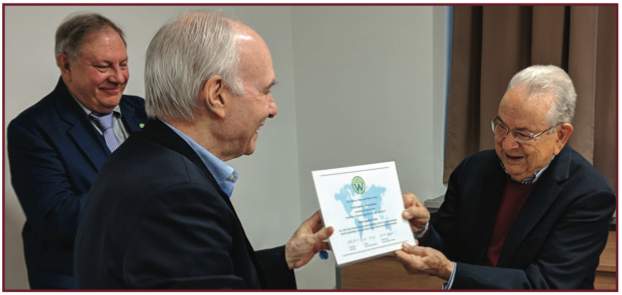 |
At Dubrovnik, the WAAS Board of Trustees honored President Heitor Gurgulino de Souza with a special certificate of appreciation for his outstanding service to the Academy and the world. |
||
Financing the SDGs |
|||
Whole System Thinking |
|||
Role of Academia and Civil Society |
|||
Belt & Road Initiative as an Element of Global Governance
|
|||
A Brief Perspective on Good Governance in the BalkansThe countries of the Balkan Peninsula are currently exposed to three types of expansionism, which are analyzed as three important elements of global governance crossing each other in a complex way. They are the energetic expansion of Russia toward Europe, the economic expansion of China toward Europe, and the military expansion of NATO toward Russia. – Nebojsa Nešković |
Contribution of the Economy to Global GovernanceThe world economy is a highly interdependent whole of different functional subsystems. This interconnectivity endogenously enforces an increasing global cooperation, whichcan be made a main point of reference for the development of global governance. – Erich Hoedl |
||
Viable Pathways for the Transition to a Global Society
|
|||
Marshalling Collective Energies |
|||
 |
|||

“The United Nations Sustainable Development Goals (SDGs) are a guide for the social evolution of humankind. Consciousness is what drives our actions; how we allocate capital fuels those actions. Our task is to integrate these dynamics with integrity to achieve a better outcome for humanity.” — Lawrence Ford
|
|||
|
Our consciousness determines the values and perspectives through which we view the world. Widening the perception and raising the values reveal opportunities where once we perceived only limitations. New perspectives can radically accelerate progress toward a new paradigm for human development. The Future of Capital Summit is being organized by the United Nations Office for Partnerships and the World Academy of Art & Science. It will bring together an extraordinary and selected blend of global leaders carefully chosen for their expertise and demonstrated actions, including investment and financial professionals, political leaders and policy-makers, businessmen and women, researchers, thought-leaders, social entrepreneurs, activists, community leaders and philanthropists. The format of the event is interactive, co-creative, and focused on action. Our goal is to mobilize the global business community to put conscious capital into action for the common good. Our strategy is to demonstrate that organizations which adopt a conscious capital business model can achieve their business objectives in a manner that can exceed their organizational goals and support achievement of the SDGs—the two accomplishments being related by a causal link. Collectively, we will ask and address the following questions:
|
The Future of Capital Summit will convene selected global leaders to address a central question: How do we develop more conscious capital? The summit is designed to showcase, inspire, co-create, and encourage a commitment to action to resolve major challenges facing humanity.
Some of the themes will include:
|
||

World Bank Headquarters, Washington DC |
|||
|
From Left to Right: Sheila R. Ronis, Garry Jacobs, Craig Hammer, Winston P. Nagan & Jerome C. Glenn |
|||
Marshalling Collective Energies
|
|||
Effective governance for the implementation of SDGsAs populism becomes more established, public confidence in institutions is key to addressing the issues of the 21st century. Three issues are fundamental in modelling public institutions:
Effectiveness, Accountability and Inclusiveness are the principles of effective governance needed to achieve the SDGs. These principles offer a roadmap from which all actors in governance—administrations, associations, citizens, businesses and researchers—can draw inspiration. – Philippe Destatte |
The Wisdom required for Global Governance
The global challenges confronting the world today cannot be managed by anything less than concerted and sustained action on a global scale. These include the prevention of nuclear war and nuclear proliferation; managing the societal consequences of revolutionary scientific breakthroughs in fields such as artificial intelligence and synthetic biology; and constraining climate change. The consequences of failure are existential, and the time available for anticipatory action is right now. There is hope, but no guarantee, that as a civilization — and even as a species — we will succeed. We have demonstrated the power to challenge nature, but not necessarily the wisdom to master ourselves, and, moreover, to do so by means that are democratic. Global governance requires that we pass these tests. – Leon Fuerth |
||
 |
|||
The Significance of International InstitutionsThe world needs stable international institutions. Systems in many countries and situations in the world today are complex or chaotic. Investments in international institutions, when infused into the global system, reduce entropy and make systems less complex. This will make them simpler to be organized and managed. Therefore investment in stable global institutions is critical to maintaining global stability: a necessary condition for promoting justice, prosperity and peace. – Sheila R. Ronis |
Trans-Institutional Models of GovernanceWe need to begin to develop a global governance system for the transition from artificial narrow intelligence to artificial general intelligence. Future governance systems should consider the Trans-Institutional Model—an institution whose governing body, sources of income, and staff come from various governments, business, academia, NGOs, and UN or other intentional organizations. Tele-Nations (cyberspace connecting those overseas to the development process back home) could assist governance for development of poorer regions. – Jerome C. Glenn |
||

Ethical Markets Media, St. Augustine, Florida
|
|||
|
Following the end of the Cold War, democracy seemed to establish itself as the most acceptable and effective form of governance. Recent developments challenge this idea. A roundtable was conducted in St. Augustine on November 7-9, 2018, in collaboration with WAAS’ new partner Ethical Markets Media, founded by WAAS Fellow Hazel Henderson. It explored the foundations of democracy and the challenges it faces today, with special emphasis on recent developments in North America and Europe. The objective of the meeting was to draw lessons from the recent rise of populism and polarization and identify ways to promote more stable, effective and equitable democratic systems of governance. Participants explored issues related to the impact of accelerated globalization, financialization and state capitalism on democracy, polarization of society and plutocracy; policies and institutional mechanisms that can safeguard democratic systems from abuse; the role of social, psychological and cultural factors in the functioning of democratic institutions; ways to regulate the impact of social media, artificial intelligence and other 4th industrial revolution technologies; and alternative models to more effectively pursue the democratic ideals of freedom, security, prosperity, social equality and social harmony. Corporate-led, narrow forms of globalization driven by neoliberal economics bypass and thereby marginalize some groups of people. These economic ideologies are rooted in textbook errors assuming scarcity that incentivizes competition and conflicts over resources. Global culture is dominated by patriarchal values, resulting in unequal, unbalanced decision-making and governance structures worldwide. We need cooperation at all levels—family, communities, corporations, cities, nations and global institutions of collective governance – in order to transform the culture. LaRae Long, Executive Director of Ethical Markets, emphasized the importance of local and virtual networking and information sharing in maintaining a vibrant democracy. The modern nation-state is the product of centuries of gradual social evolution by the integration of smaller units—city states, regional kingdoms and states—within |
a larger political, social, economic and cultural entity with common laws and a shared psychological entity. A case study of managing the threats of sea level rise by Nancy Shaver, Mayor of St. Augustine, and Vice-chair of Florida’s state-wide committee of mayors, illustrates the significant scope for individual initiative and local impact by committed political leaders and concerned citizens in the vibrancy and their enormous importance for the effective governance of the nation-state. Establishing and maintaining a delicate balance between freedom for individual initiative, local vitality and dynamism, and centralized administration is the greatest challenge confronting large, centralized democracies today.
Garry Jacobs reflected on the causes and consequences of the recent deterioration in the quality of American democracy and its impact on the country and the world. These events clearly demonstrate the serious problems posed by the dominance of money in politics and the lack of accountability of the two party political system to the will of the people. At the same time they have had the salutary effect of demonstrating the limitations on the exercise of absolute power due to the checks and balances between branches of government, the semi-autonomous functioning of government agencies and the judicial system, and the magnitude of the power of states to challenge and successfully oppose or circumvent policies which they did not support related to environmental protection, the rights of immigrants and freedom of choice. The shattering of illusions about America may well be an essential step in the emergence of a more mature, responsible, committed community of nations. The importance of managing uncertainty as a path to progress was underlined by Rodolfo Fiorini. Democratic culture accepts uncertainty and the idea that there is always more than one answer to any problem, and truth in each of multiple, even opposing viewpoints. There can be no peace without development, no development without peace and neither one without human rights and democracy. Our current crises call for unity among people and reunification of knowledge. The more we share common values and accept individual divergence, the more chances we will have for peace and progress. |
||
 
Good Governance in the Levant |
|||
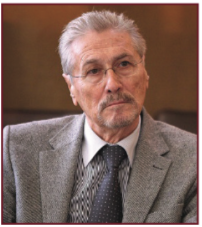
The Institute for Advanced Studies in Levant Culture and Civilization, a WAAS Centre of Excellence, organized an exploratory workshop in good governance in the Levant in Bucharest on October 29-30, 2018. The meeting brought together international and national members of the Institute’s Scientific Council who are WAAS Fellows together with external experts and research staff of the Institute. The discussion examined the historical process of social evolution of the Levant region that has led to the increasing contact and integration of its rich multi-cultural environment. The workshop was chaired and opened by ISACCL President Emil Constantinescu. He stressed the central contribution of the Levant to the rise of the West. He identified three important sources of Western civilization to their origin in the Levant: the Roman law codified under Justinian, the Judeo-Christian tradition and Hellenic culture which reemerged in the Renaissance. Therefore, an appreciation of history is of paramount importance for understanding events and tendencies in the present and future.
The close proximity of intercultural contact, intensity of interaction and contradictory orientations has been a perpetual stimulus to civilizational advances and cultural creativity in science, language, religion, literature and the arts. Garry Jacobs observed that the tensions in the region highlight its special significance as a human laboratory and testing ground for the movement of human unity founded on respect for cultural diversity.
Emphasis was placed on the inseparable relationship between culture and governance, which underlines the limitations imposed by the compartmentalization of the social sciences. Power and culture have always been closely associated. Social power is a product of the values of the society and the distribution of the power is a reflection of those values. Democracy in Europe emerged as an expression of the prior evolution of liberal social culture and not as its cause, as is so often forgotten by policy makers who seek to impose the apparatus of democracy on societies which do or have not yet acquired the cultural values compatible with it. Remus Pricopie, WAAS Fellow, Member of ISACCL’s Scientific Council and Rector of the Romanian National University of Political Studies and |
Public Administration, emphasized the importance of the Institute’s research agenda to shedding light on the future course of global governance and social evolution.
The increasing speed, complexity and uncertainty of modern life have multiplied and intensified cultural contacts to a degree never before experienced in human history. That is a major reason for the tensions generated along cultural boundaries. It is also the source of an unprecedented opportunity for creative cultural enrichment. The workshop explored the conditions under which cultural identity shifts its emphasis from opposition to what is different to inclusion. Alberto Zucconi perceived ISACCL’s mission as an effort to create a unifying narrative for the region that will shift the balance from one to the other. Daniela Zaharia examined the pressure on the region resulting from the demographics of a young population, globalization of economy and technological developments. Florica Mihuţ stressed the need for research on how to reorient and leverage cultural identity from emphasis on differences to exploring the cultural gains that accrue from cultural contact and integration. Indeed, the whole of human history and the sum total of all human civilization and culture has been a result of that process. Peace and harmony in the region require a shift from intolerance toward that which is different to a respect and admiration for complementary cultural perspectives. The relationship between religion and the state was explored by Andreea Grecu-Ciupală, Director of ISACCL. It is noteworthy that throughout history the separation and subordination of religious leadership from governance played a critical role in the formation of the nation-state, which required development of a national identity distinct from shared religious beliefs.
The Balkans have historically occupied a central position as the passageway and meeting ground between Europe and the Levant. The region remains strategically important to this day. Nebojsa Nešković identified three types of expansionism impacting on the region which represent important elements of global governance: the energetic expansion of Russia toward Europe via oil pipelines passing through the Balkans, the economic expansion of China toward Europe through the Belt and Road Initiative which now includes 17 nations, including 11 EU members and 5 Balkan countries, and the military expansion of NATO toward Russia since 1991 which came to a critical stage with the outbreak of civil war in Ukraine in 2014 and threatens the onset of a new Cold War. |
||
Reunification of the Korean Peninsula |
|||
|
ISACCL’s program on “Solidarity of Empathy for Peace” brings together world leaders to spread the culture of peace and call for support for the peaceful reunification of the Korean peninsula. These leaders with their first hand experience of the Cold War, Korean War, ethnic conflicts and the transition to democracy possess valuable expertise in the long process of peaceful reunification. It is some thirty years after the Cold War ended, and nearly twenty since the idea of Korean reunification was tentatively explored. The process can be expedited with international support. The move for reunification can be initiated by first allowing people to travel freely between the North and the South. Then employment and economic relations can gradually pave the way for political unity. This will establish peace not just in the region but across the globe. German strategist Clausewitz considered that war was a continuation of politics by other means. Peace can also be a result of politics, obtained through other means. |
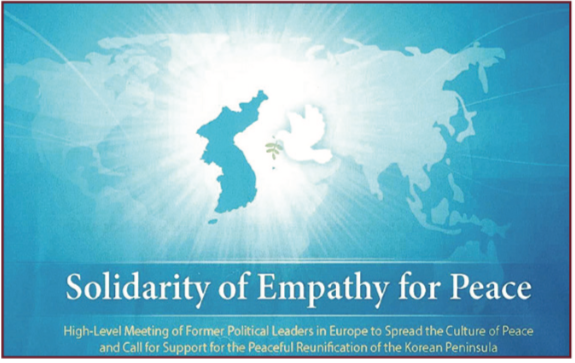 One of these means is cultural diplomacy—which without intending to replace the traditional diplomacy of dialogue between parties having different interests, supported through different types of pressures and force threats—can complement it with a new element: the dialogue based on understanding the other and a better understanding of the world we live in. One of these means is cultural diplomacy—which without intending to replace the traditional diplomacy of dialogue between parties having different interests, supported through different types of pressures and force threats—can complement it with a new element: the dialogue based on understanding the other and a better understanding of the world we live in. |
||
Revival of the Silk RoadGreat projects remain in history because they create regional, national and international solidarities. This is true of the Silk Road project. The revival and continued significance of this project depend on its cultural as well as its political and economic impact. Political relationships can break in a matter of hours, economic ties in months, but cultural relations last centuries. Current Silk Road initiatives focus on the economic, infrastructural and political aspects. ISACCL promotes both the economic as well as the cultural value of the project. Its commitment to the project can be traced back to the 1990s when TRACECA, a transport passageway between Central Europe and South West Asia, was proposed. Today, ISACCL supports projects dedicated to the cultural heritage of the countries crossed by this road and calls upon the support of academia, science and cultural research to complement the efforts of politicians and business people towards reviving the Great Silk Road project in all its dimensions. |
UPCOMING EVENTGlobal Leadership in the 21st Century
Great projects remain in history because they create regional, national and international solidarities. This is true of the Silk Road project. The revival and continued significance of this project depend on its cultural as well as its political and economic impact. Political relationships can break in a matter of hours, economic ties in months, but cultural relations last centuries. Current Silk Road initiatives focus on the economic, infrastructural and political aspects. ISACCL promotes both the economic as well as the cultural value of the project. Its commitment to the project can be traced back to the 1990s when TRACECA, a transport passageway between Central Europe and South West Asia, was proposed. Today, ISACCL supports projects dedicated to the cultural heritage of the countries crossed by this road and calls upon the support of academia, science and cultural research to complement the efforts of politicians and business people towards reviving the Great Silk Road project in all its dimensions. |
||
 |
|||

The Rationale behind ICCI*CC 2019 |
|||
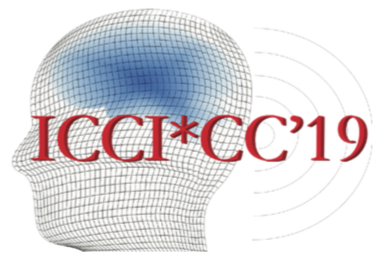
Disruptive technologies appear at an accelerating pace today and if we manage the incoming Fourth Industrial Revolution with the same blindness and forms of denial with which we managed the previous industrial revolutions, the negative effects on our society will be exponential. Today, Artificial Intelligence assists people and improves their work efficacy. It has contributed towards accelerating research, cybersecurity, wildlife preservation, diagnosing illness, and human search and rescue. Eventually, there will come a day where robots will perform most tasks and the role of humans in the production cycle will be marginal. We are on the cusp of significant transformative changes that will impact society worldwide, revolutionizing global business operations and fundamentally altering how inanimate |
 objects are perceived in a world increasingly reliant on autonomous systems. It is hard to envision the dynamics of a robot-driven economy. In order to prepare for the uncertain future as best as we can, education is our key facilitator. We need deeper reality understandings and multidisciplinary, interdisciplinary and transdisciplinary competencies in the business, technical, management and social communities at all levels and scales. objects are perceived in a world increasingly reliant on autonomous systems. It is hard to envision the dynamics of a robot-driven economy. In order to prepare for the uncertain future as best as we can, education is our key facilitator. We need deeper reality understandings and multidisciplinary, interdisciplinary and transdisciplinary competencies in the business, technical, management and social communities at all levels and scales.
WAAS’ participation in ICCI*CC 2019 is an effort to understand the societal implications of intelligence, knowledge, and big data sciences and handle the shrinking gap between humans and machines in order to develop symbiotic relationships that have significant positive implications for human society as a whole. – Rodolfo Fiorini |
||

18th IEEE International Conference on Cognitive Informatics & Cognitive Computing (ICCI*CC 2019)
|
|||
| IEEE ICCI*CC 2019 is a flagship conference of its field, sponsored by the IEEE (Institute of Electrical and Electronics Engineers). Following the first 17 successful conferences on Cognitive Informatics and Cognitive Computing, the 18th edition focuses on the theme of Symbiotic System Science. It is co-organized by IEEE and WAAS, and consists of two parallel yet intertwined tracks to promote fruitful, reciprocal knowledge, a cross- fertilization of the two lines of human thinking that are complementary to each other.
The CPT (Cyber-Physical-Technical) Track will present the latest developments in natural intelligence systems, man-machine systems, cognitive robots, intelligent IoT, etc., based on Cognitive Informatics, the transdisciplinary field that studies the mechanisms of the brain, underlying abstract intelligence theories and denotational mathematics, and their applications. This Track will be organized under the supervision of IEEE. |
March 31, 2019: Submission of Full Papers
The CSW (Cognition-Society-Wellbeing) Track, organized by WAAS, will examine the economic, educational, social, legal, political, cultural, epistemological and psychological implications of rapid advances in cognitive computing and machine learning. It will study policies that regulate disruptive technologies while fostering innovation so that individuals and businesses can reap the benefits of these technologies. ICCI*CC 2019 will provide an opportunity to focus on the social consequences and policy implications of knowledge that are of paramount concern to future society, and governance. Researchers, practitioners, and graduate students are welcome to join this international initiative on cognitive informatics and computing where Art & Science join symbiotically to create a brighter future. For more information and to register, click here. |
||

CALL FOR PAPERS
FOR SPECIAL SESSION ON“Human-Centered Symbiotic System Science for Industry 4.0”for SMC’19 – October 6-9, 2019 – Bari, Italy |
|||
|
Systems, Man, and Cybernetics (IEEE SMC 2019), the annual conference of IEEE, represents an international forum for researchers and practitioners to report up-to-the-minute innovation and development, summarize state-of-the-art developments, and exchange ideas and advances in all aspects of systems science and engineering, human machine systems, and cybernetics. The theme of the conference is Industry 4.0. SMC 2019 includes a special session on human-centered Symbiotic System Science (SSS) for Industry 4.0. SSS is a growing scientific area which is taking a leadership role in fostering consensus on how best to bring about symbiotic relationships between autonomous systems. WAAS is partnering in this special session. Session Description This special session deals with the problem of cognitive and evolutive learning by SSS, illustrating focused examples specifically. The modern world has been shaped by the technological revolutions of the past, like the Industrial Revolution and the Information Revolution. Today, disruptive technologies are appearing at an accelerating pace. In January 2015, Stephen Hawking, Elon Musk, and other experts signed an open letter on artificial intelligence (AI) calling for research on the societal impacts of AI, anticipating its potential risk to the violent downfall of humankind. On the contrary, AI, Computational Intelligence and Cognitive Robotics are helping people around the world do their jobs more easily and in shorter time. Regulating has never been easy, but the overwhelming pace of technological change and unprecedented interconnectedness of economies has made it a daunting task. Nevertheless, if we manage the incoming Fourth Industrial Revolution with the same blindness and forms of denial with which we managed the previous technological revolutions, the negative effects on our society will be exponential. We need more integrated, articulated and antifragile approaches to be successful. |
The goal is sharing the SSS concepts as the theoretical common framework to harmonize separate efforts to help develop more effective human-centered symbiotic systems, faster and more reliably.
Session Organizers Rodolfo Fiorini, Politecnico di Milano University Newton Howard, Oxford University Garry Jacobs, World Academy of Art and Science Yingxu Wang, University of Calgary Important Dates
Submission Instructions
For more information, please contact |
||
 |
|||
|
The 5th Altius conference gathered eminent scientists, educators and philosophers at the Oxford Union under the title “Educating for the Future.” Organized by Carlos Blanco (Associate Fellow, WAAS) and Alexandre Pérez Casares, co-founders of Altius, the main theme was how to empower the human mind as a means to ensure the stability of democratic societies and major economies in the 21st century. Beyond a traditional analysis of education, it explored topics such as:
|
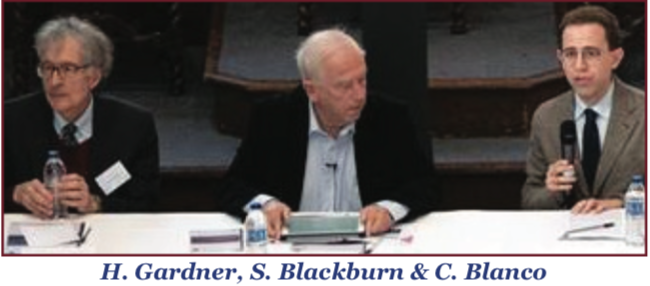
Four Nobel laureates (Sheldon Glashow, Peter Agre, Sir Richard Roberts and Oliver Hart) and thinkers such as Howard Gardner, Harvard psychologist credited with developing the concept of multiple intelligences, economist Jeffrey Sachs, Anne Watson, Archie Brown, Manuela Veloso and Simon Blackburn were among this year’s speakers. Garry Jacobs, a past speaker at Altius, also participated in the event. – Carlos Blanco, Co-founder, Altius Society; Associate Professor, Universidad Pontificia Comillas, Spain; WAAS Associate Fellow |
||

Alliance for Development and Climate Change |
|||
|
There is a pressing need for a transformative alliance to avert the worst consequences of climate change while advancing the development concerns of Agenda 2030! The German Ministry for Economic Cooperation and Development and Federal Minister Gerd Müller have launched a multi stakeholder initiative “Alliance for Development & Climate” in the context of the 2018 Katowice Climate Change Conference. The Alliance recognises, links and advertises the simultaneous promotion of development and climate protection. Climate, population development and SDGs are closely linked to each other. Fighting climate change requires that we act much more decisively than before. The SDGs need a new, less nationalized approach and more international financing in order to implement the Agenda 2030. The new Alliance will address this bottleneck by activating the private sector/all non-state actors, to voluntarily invest in the field of CO2 compensation through co-benefits |
 generating projects in non-industrialized countries. Its vision is an effective alliance of strong non-state actors, especially market leaders, for climate-neutral/climate-positive economic activities. generating projects in non-industrialized countries. Its vision is an effective alliance of strong non-state actors, especially market leaders, for climate-neutral/climate-positive economic activities.
The activities of the alliance partners are voluntary and are carried out through participation in high-quality projects in non-industrialised countries. The Alliance is supported by WAAS and the Club of Rome. Other confirmed partners are Alfred Ritter GmbH & Co. KG and Plant-for-the-Planet Foundation. Everyone is called upon to take responsibility in a strategic multi-stakeholder initiative for development and climate protection! Franz Josef Radermacher, Director, Research |
||
UN World Citizens’ Initiative
|
|||
 |
|||
|
Ethical Markets Media (USA and Brazil) Certified B Corporation, is a micro-multinational social enterprise with the mission of reforming markets and metrics while helping accelerate and track the transition to the green economy worldwide with the Green Transition Scoreboard®, Ethical Biomimicry Finance®, Transforming Finance TV Series and research and daily news at www.ethicalmarkets.com. Ethical Markets Media was founded by Hazel Henderson, a world renowned futurist, evolutionary economist, a worldwide syndicated columnist, consultant on sustainable development, and author of The Axiom and Nautilus award-winning book Ethical Markets: Growing the Green Economy (2006) and eight other books. She co-edited, with Harlan Cleveland and Inge Kaul, The UN: Policy and Financing Alternatives, Elsevier Scientific, UK 1995 (US edition, 1996), and co-authored with Japanese Buddhist leader Daisaku Ikeda, Planetary Citizenship (2004).
The Millennium Project is a global participatory think tank established in 1996 under the American Council for the United Nations University that became independent in 2009 and has grown to 63 Nodes around the world (an MP Node is a group of institutions and individuals that connect local and global perspectives). As a global foresight network of Nodes, information and software, it is building a global collective intelligence system recognized for its ability to improve prospects for humanity. A think tank on behalf of humanity, the Millennium Project identifies long-range challenges and strategies, and initiates and conducts foresight studies, workshops, symposiums, and advanced training. Its mission is to improve thinking about the future and make it available through a variety of media for feedback to accumulate wisdom about the future for making better decisions today. It produces the State of the Future reports, the Futures Research Methodology series, the Global Futures Intelligence System (GFIS), and special studies. Over 4,500 futurists, scholars, business planners, and policy makers who work for international organizations, governments, corporations, NGOs, and universities have participated in The Millennium Project’s research since its inception in 1992 and founding in 1996. The Millennium Project was selected among the top ten think tanks in the world for new ideas and paradigms by the 2013 and 2014 University of Pennsylvania’s GoTo Think Tank Index, and 2012 Computerworld Honors Laureate for its contributions to collective intelligence systems. |
|||
International Conference on Future Education
Today’s youth need to acquire “evolutionary competence” based on knowledge and skills for jobs that do not even exist today. A new type of education—a new paradigm—is urgently needed to address the challenges and paradoxes of the coming age, capitalize on the emerging potentials, and transform possible threats into opportunities. WAAS and WUC are working in partnership with universities and other organizations around the world with this objective. The 4th International Conference on Future Education is being organized in Belgrade, Serbia in November 2019 in order to accomplish this goal. |
Approaching 20?? YearPodgorica – May 16-18, 2019
The unprecedented speed of globalization, technological development and social evolution is raising fundamental questions and generating new types of challenges and complexities that express in terms of climate change, financial crises, skills gap, widening inequalities, immigration, increasing insecurity, and other fundamental doubts about the future. The Approaching 20?? Year conference will explore these challenges and the steps that need to be taken to moderate the consequences of rapid technological change, mitigate its disruptive impact and maximize its positive potential. This conference seeks to develop the comprehensive and inclusive knowledge required to transform rapid change into progressive global social evolution. |
||
